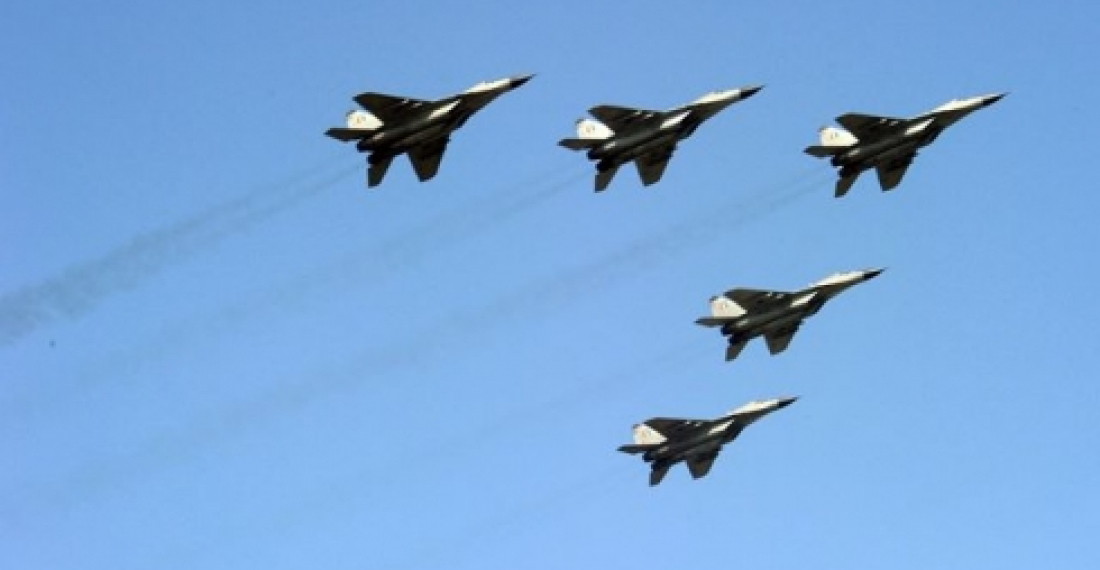Russia has started large scale military manoeuvres in Armenia.
About 3,000 military personnel and over 500 units as well as MiG-29 fighters will participate in the exercises taking place in the areas of Alagyaz and Kamkhud. The exercises are under the control of the Southern Military District of the Russian Federation and are led by Lieutenant General Alexander Romanchuk.The Russian 102nd Military Base is located near the Armenian city of Gyumri. In 2010 Russia and Armenia agreed to prolong the agreement on the presence of the base until 2044.
The exercises started on the same day that Russia and Azerbaijan signed a military co-operation agreement during a visit to Baku of Russian Defence Minister, Sergei Shoigu. The manoeuvres are expected to end on Sunday.
source: commonspace.eu with agencies
photo: A squadron of MiG-29 aircraft in formation (archive picture)







